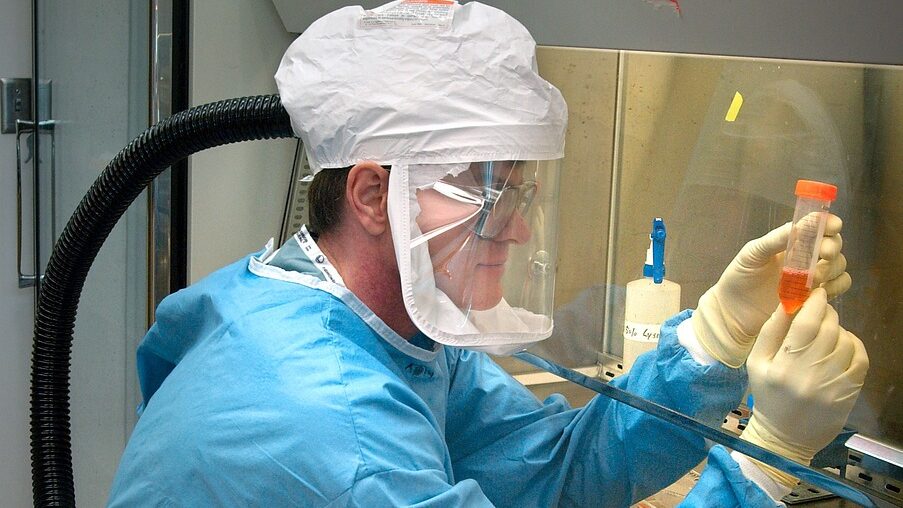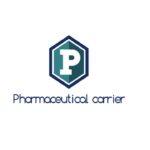Are you a pharmacy graduate in India seeking a fulfilling career path? While traditional options like retail or clinical pharmacy are well-known, the government sector offers a wealth of opportunities that often go unnoticed. With your pharmacy education, you possess a skill set that can open doors to various government roles aimed at improving public health and contributing to the nation’s well-being. In this article, we’ll delve into the array of possibilities awaiting pharmacy graduates within the Indian government sector.
Introduction of Government Opportunities After Pharmacy
Pharmacy education equips graduates with the knowledge of medications, their interactions, and patient care. While pharmacy graduates commonly pursue careers in retail or clinical settings, the government sector offers a unique opportunity to apply your expertise on a larger scale.
Relevance of Pharmacy Education in Government Roles
Pharmacy education is a strong foundation for excelling in government roles. The understanding of drug properties, dosages, and patient counseling gained during your education is vital for roles that involve ensuring safe and effective medication distribution.
In the complex landscape of modern healthcare, the role of pharmacists has transcended traditional dispensing duties to encompass crucial responsibilities in various sectors, including government roles. The relevance of pharmacy education in governmental positions cannot be overstated, as these professionals contribute significantly to public health, policy-making, and the efficient functioning of healthcare systems. With their comprehensive understanding of medications, drug interactions, and patient care, pharmacists bring a unique perspective to government roles that directly impacts the well-being of communities.
Pharmacy education equips individuals with a robust foundation in pharmacology, therapeutics, and healthcare management. These skills are highly sought after in governmental agencies, where decisions related to drug regulations, safety, and accessibility are paramount. Pharmacists possess the expertise to evaluate the safety and efficacy of medications, ensuring that only quality drugs reach the market and patient populations. Their involvement in regulatory bodies can prevent harmful drugs from entering the supply chain and thereby safeguard the public from potential health risks.
Furthermore, pharmacists are instrumental in policy formulation. Their knowledge of pharmaceuticals and patient care allows them to contribute insights that balance the need for affordable healthcare with the imperative of maintaining high treatment standards. Government agencies tasked with creating healthcare policies can benefit from pharmacists’ perspectives on cost-effective yet clinically effective interventions. This collaborative approach can lead to policies that optimize patient outcomes while managing healthcare costs.
In the realm of public health, pharmacists are integral to disaster preparedness and response efforts. During health crises or pandemics, they play an essential role in distributing medications, advising on treatment protocols, and ensuring the proper use of drugs. Their presence in government roles ensures that emergency healthcare plans are comprehensive and well-coordinated.
Governmental positions also involve managing healthcare programs, such as vaccination campaigns and chronic disease management initiatives. Pharmacists’ education enables them to design and implement such programs effectively, ensuring that interventions are evidence-based, safe, and efficient. Their direct patient interactions and counseling skills enable better patient adherence to treatment regimens, resulting in improved health outcomes on a population scale.
Collaboration between pharmacists and other healthcare professionals, including physicians and nurses, is essential in government roles. Pharmacy education emphasizes interdisciplinary teamwork, allowing pharmacists to contribute meaningfully to healthcare initiatives that require diverse expertise. Their presence at decision-making tables facilitates a well-rounded approach to healthcare policy and program implementation.
Government Opportunities After Pharmacy: Government Pharmacist

Government pharmacists hold a pivotal role in dispensing essential medications to the public. Whether it’s in urban health centers or remote clinics, these pharmacists contribute significantly to public health by making crucial medications accessible to all.
In the vast realm of healthcare, the role of the government pharmacist stands as a pillar of support, ensuring the welfare and well-being of the population. With their unique position at the intersection of medicine, policy, and public health, government pharmacists play a vital role in dispensing not just medications, but also a crucial aspect of societal health and welfare.
At the heart of their responsibilities lies the safe and effective dispensing of medications. Government pharmacists are tasked with upholding rigorous standards to ensure that the medications reaching the public are of the highest quality and meet stringent safety criteria. They collaborate closely with regulatory agencies to evaluate and approve medicines, ensuring that the populace receives treatments that are both efficacious and safe.
In addition to their pivotal role in medication safety, government pharmacists contribute significantly to the formulation of healthcare policies. Drawing upon their comprehensive knowledge of medications and their effects, these professionals provide invaluable insights during policy discussions and decision-making processes. Their input helps strike a balance between healthcare accessibility, cost-effectiveness, and patient-centered care. Government pharmacists thus become architects of healthcare policies that prioritize the greater welfare of the population.
Public health initiatives also benefit greatly from the involvement of government pharmacists. Their expertise extends beyond the confines of medication dispensing, encompassing disease prevention, health promotion, and crisis management. In times of health emergencies, such as pandemics or natural disasters, these pharmacists play an instrumental role in ensuring the availability and proper use of essential medications. Their presence in such critical situations ensures that medicinal welfare remains a cornerstone of public health strategies.
The role of a government pharmacist transcends the confines of a pharmacy counter. These professionals are champions of patient education and empowerment. With their deep understanding of medications, drug interactions, and potential side effects, government pharmacists educate patients about their treatments, enabling them to make informed decisions about their health. This education empowers individuals to actively participate in their healthcare journeys, leading to better adherence and improved health outcomes.
Government Opportunities After Pharmacy: Research and Innovation in Government Laboratories

Government research laboratories offer pharmacy graduates the chance to contribute to groundbreaking research. This can range from developing new drug formulations to studying public health trends, all of which impact healthcare policies.
Government laboratories serve as epicenters of research and innovation, driving progress across diverse scientific domains. These institutions play a pivotal role in pushing the boundaries of knowledge, developing groundbreaking technologies, and addressing pressing societal challenges. The convergence of expertise, resources, and a commitment to discovery within government laboratories creates an environment that fosters transformative research and innovation.
One of the primary functions of government laboratories is to undertake research that addresses critical issues of national importance. These laboratories tackle a wide spectrum of challenges, ranging from healthcare and energy to environment and national security. By conducting foundational research and applied studies, they lay the groundwork for technological advancements that ultimately improve the quality of life for citizens.
Innovation within government laboratories often stems from the collaboration of multidisciplinary teams. Scientists, engineers, technologists, and policy experts work together to explore uncharted territories, leveraging their varied perspectives to arrive at holistic solutions. This interdisciplinary approach is key to generating novel ideas, as it encourages the cross-pollination of concepts and the integration of knowledge from diverse fields.
Furthermore, government laboratories provide a fertile ground for translating research into practical applications. Through the development of prototypes, proof-of-concepts, and pilot projects, these institutions bridge the gap between theory and real-world impact. Innovations born within government laboratories can subsequently be scaled up for implementation in various sectors, contributing to economic growth and societal progress.
The role of government laboratories in nurturing talent and expertise cannot be overstated. These institutions serve as incubators for the next generation of scientists and researchers. By offering mentorship, training, and hands-on experience, they cultivate a skilled workforce that is equipped to tackle the challenges of the future. Additionally, collaboration with universities, industries, and international partners enhances the exchange of knowledge and expertise, further enriching the research ecosystem.
In recent times, government laboratories have been at the forefront of addressing global challenges, such as climate change, pandemics, and cybersecurity. Through innovative research, these institutions develop strategies, technologies, and policies that safeguard the well-being of citizens on a global scale. Their contributions underscore the indispensable role of research and innovation in shaping a more resilient and sustainable world.
Regulatory Compliance: Ensuring Safe Healthcare
Maintaining stringent quality and safety standards for medications is a crucial task handled by government regulatory bodies. Pharmacists in these roles evaluate drugs, monitor recalls, and work to prevent counterfeit products from entering the market.
In the intricate landscape of healthcare, regulatory compliance stands as a cornerstone of ensuring patient safety, treatment efficacy, and ethical standards. The stringent adherence to regulations and guidelines is essential to maintaining the integrity of healthcare systems, safeguarding public health, and fostering trust between medical professionals, institutions, and the patients they serve.
The primary objective of regulatory compliance in healthcare is to establish a framework that guarantees the highest standards of safety and quality in medical practices. Regulatory bodies set forth guidelines that encompass a wide spectrum of aspects, including drug development, clinical trials, medical devices, patient care, and ethical conduct. These regulations serve as benchmarks against which healthcare providers and institutions measure their practices, ensuring that they are aligned with evidence-based protocols.
One of the critical areas where regulatory compliance plays a vital role is in the approval and monitoring of pharmaceuticals and medical devices. Rigorous evaluations are conducted to assess the safety, efficacy, and quality of drugs before they reach the market. Regulatory agencies closely monitor post-market activities to promptly identify and address any adverse events, ensuring that patients receive treatments that meet the highest standards of safety and efficacy.
Moreover, regulatory compliance ensures that healthcare providers adhere to ethical standards and patient rights. Regulations dictate the manner in which patient information is handled, stored, and shared, emphasizing the importance of confidentiality and informed consent. This framework guarantees that patients’ dignity, autonomy, and privacy are respected throughout their healthcare journey.
Regulatory compliance also plays a significant role in fostering transparency and accountability. By establishing clear guidelines for record-keeping, reporting, and quality assurance, regulatory bodies ensure that healthcare providers maintain accurate documentation of their practices. This transparency not only enhances patient care but also facilitates the identification of any deviations from established norms, allowing corrective actions to be taken promptly.
Public Health Initiatives and Awareness Campaigns
Government pharmacies often take the lead in public health campaigns. Pharmacists educate communities about proper medication usage, conduct vaccination drives, and raise awareness about disease prevention, thus improving public health outcomes.
Public health initiatives and awareness campaigns are powerful tools that play a crucial role in promoting health, preventing diseases, and improving the overall well-being of communities. These efforts are designed to educate, engage, and empower individuals, fostering a culture of proactive healthcare management and informed decision-making. By targeting a wide range of health concerns, from disease prevention to healthy lifestyle promotion, public health initiatives and awareness campaigns contribute significantly to building healthier and more resilient societies.
One of the primary goals of these initiatives is disease prevention. By raising awareness about common health risks, such as infectious diseases, chronic conditions, and lifestyle-related illnesses, public health campaigns empower individuals to take preventive measures. Through educational materials, workshops, and community events, people gain insights into the importance of vaccinations, regular check-ups, and adopting healthy habits. This proactive approach not only reduces the burden on healthcare systems but also enhances the quality of life for individuals and communities.
Pharmacovigilance: Safeguarding Medicine Consumption
Pharmacovigilance experts in the government monitor adverse drug reactions to ensure the safety of medications. Their work plays a pivotal role in maintaining the integrity of the pharmaceutical supply chain.
In the realm of healthcare, pharmacovigilance stands as a critical safeguard for medicine consumption, ensuring the ongoing safety and efficacy of pharmaceutical products. This indispensable practice is dedicated to monitoring, identifying, assessing, and preventing adverse effects and any other drug-related concerns that may arise post-market approval. By continuously evaluating medications, pharmacovigilance plays a pivotal role in upholding public health, promoting patient safety, and maintaining trust in the medical treatments that individuals rely upon.
The primary goal of pharmacovigilance is to detect and respond to adverse reactions and unexpected effects associated with medications. It provides a systematic approach for healthcare professionals, regulatory bodies, and pharmaceutical companies to gather and analyze information about adverse events that patients might experience while using specific drugs. Through robust data collection, analysis, and reporting mechanisms, pharmacovigilance identifies potential safety concerns promptly, allowing for swift interventions and risk mitigation strategies.
The pharmacovigilance process encompasses a wide range of activities, including monitoring adverse events, analyzing data trends, conducting signal detection, and assessing causality between medications and reported effects. These activities involve the collaboration of healthcare providers, regulatory authorities, pharmaceutical companies, and patients. By consolidating information from diverse sources, pharmacovigilance provides a comprehensive view of a medication’s safety profile, enabling evidence-based decision-making.
Government Hospitals: A Hub of Diverse Roles
Government hospitals offer a plethora of roles for pharmacists, including clinical positions, drug procurement, and management. This environment exposes pharmacists to a wide array of healthcare activities.
Government hospitals stand as multifaceted institutions that play a central role in providing essential healthcare services, promoting public health, and driving medical advancements. These facilities serve as dynamic hubs where a wide array of roles converge, ranging from patient care and medical education to research, policy implementation, and community outreach. As integral components of the healthcare ecosystem, government hospitals fulfill diverse functions that collectively contribute to the well-being of individuals and the betterment of society.
Educational Institutions and Academia
Teaching and training the next generation of pharmacists is a fulfilling avenue within the government sector. Educators in government institutions shape the future of pharmacy by imparting both theoretical knowledge and practical skills.
Educational institutions and academia form the bedrock of knowledge dissemination, intellectual growth, and societal advancement. These institutions, encompassing schools, colleges, universities, and research centers, play an instrumental role in shaping individuals’ learning journeys, driving research breakthroughs, and contributing to the overall progress of societies. Through the convergence of teaching, research, and innovation, educational institutions and academia cultivate minds, foster critical thinking, and propel humanity forward.
Collaborations: NGOs and Government Pharmacies
Pharmacists frequently collaborate with non-governmental organizations (NGOs) to extend healthcare services to underserved populations. These partnerships enhance access to essential medications and healthcare resources.
Navigating the Path to Government Jobs
Applying for government positions requires careful consideration. Tailoring your resume, highlighting relevant experiences, and showcasing your commitment to public health are essential steps in the application process.
Essential Skills for Government Pharmacy Roles
Effective communication, attention to detail, adaptability, and a deep understanding of medications are vital for success in government pharmacy roles. These skills enable pharmacists to excel in dynamic and multifaceted environments.
Challenges and Gratifications in Government Careers
Government pharmacy careers come with their own set of challenges, such as bureaucratic processes, but they also offer immense satisfaction in contributing to the health and well-being of the nation’s population.
Networking: Nurturing Professional Growth
Building a professional network within the government sector can lead to mentorship, collaboration, and career advancement. Participating in conferences and joining relevant associations can significantly enhance your government pharmacy journey.
Frequently Asked Questions
1. Can I pursue a government pharmacy career right after graduation? Yes, some entry-level government positions are suitable for fresh pharmacy graduates.
2. What skills do I need to excel in government pharmacy roles? Strong communication, attention to detail, adaptability, and a deep understanding of medications are essential.
3. How can I stay updated with changing government regulations? Attending workshops, seminars, and staying connected with pharmacy associations can help you stay informed.
4. Are there opportunities for research in government pharmacy careers? Absolutely, government research institutes offer platforms to contribute to pharmaceutical research.
5. How does a government pharmacy career contribute to public health? Government pharmacists ensure medication safety, educate communities, and provide essential healthcare services, thus positively impacting public health.
- For more articles, Kindly Click here.
- For pharmaceutical jobs, follow us on LinkedIn
- For Editable SOPs in Word format contact us on info@pharmaceuticalcarrier.com
- For more information kindly follow us on pharmaguidelines.co.uk
Pharmacareer team is a team of Experts from every department of Pharmaceutical industry having enriched experience. Experts have work experience of many multinational pharmaceutical industries worldwide.



Hello Sir/Madam
I have completed bachelor degree in Pharmacy, along with this I have completed 2-months course in clinical research, clinical data management, pharmacovigilance ,regulatory affairs and medical writing.Im keenly interested working in this opportunity . I have knowledge and skills which is help to contribute to grow company .
Hi Rahul, Kindly share your profile with us on info@pharmaceuticalcarrier.com